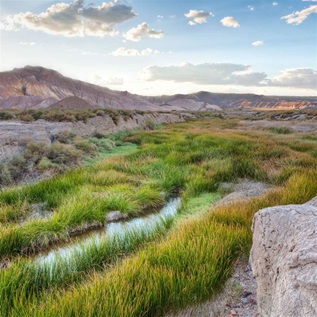Did We Save the Whales? Japan Still Harvesting Thousands Annually
If you thought we saved the whales in the 1980s, think again. Although supposedly rescued by a 1986 moratorium on commercial whaling, they're still struck by ships, caught in discarded nets, poisoned by pollution and harassed by the booming noise of underwater oil and gas exploration.
Beyond that, however, thousands upon thousands of whales have been studied to death — quite literally — by a branch of the long-entrenched Japanese bureaucracy.
The new prime minister of Japan, however, has promised to change many practices of the last 50 years of rule by his political opposition. So perhaps when Yukio Hatoyama meets President Barack Obama on Nov. 12-13, they can also discuss how best to finally end this thinly justified enterprise.
Each year, Japan sends a fleet of ships, including a huge processing factory, to the waters around Antarctica, an area declared a whale sanctuary by the international community in 1994. These vessels hunt and kill almost a thousand whales annually, with the entire operation paid for by Japanese taxpayers through the benign-sounding Fisheries Agency of Japan.
The agency calls the practice “scientific” whaling, taking advantage of a trawler-size loophole in the 1946 International Convention for the Regulation of Whaling to claim they are killing whales for research needs. The resulting whale meat that's sold in Japan — and termed a mere “by-product” — pays a part of the salaries and other costs. But with low market demand, the entire operation is heavily subsidized.
In fact, most marine scientists, including members of the International Whaling Commission's own scientific committee, agree that the research results from Japan's program could be achieved through non-lethal means, or are irrelevant to the commission's goals. But the Fisheries Agency of Japan continues to press for whaling, arguing that if Japan accedes to world opinion on protecting whales, then conservationists will turn their attention to far more important commercial fisheries. But concern over the state of the world's fisheries stands on its own, with the United Nations Food and Agriculture Organization rating 80 percent of commercial fisheries already overexploited, depleted or fully exploited — alarming figures completely independent of whaling.
It's true that a small group of bureaucrats and populist politicians in Japan have asserted that killing whales is a cultural and historical tradition. Yet it was only after World War II that Gen. Douglas MacArthur authorized the Japanese navy to take up whaling in the distant Southern Ocean. The rich tapestry of Japanese culture that dates back thousands of years should not be used to justify a relatively new, expensive and unnecessary activity that tarnishes Japan's reputation. Winds of change blowing since August in Japan, however, could finally open the door to a solution. The Liberal Democratic Party (LDP), which governed the country almost continuously since 1955, was voted out of power in large measure because of a faltering economy and a stagnant bureaucracy — both of which apply to whaling policy.
For 22 years, LDP governments subsidized whaling, even though the stockpile of unsold frozen whale meat had risen to 4,000 metric tons by the end of 2008, according to the Japanese Ministry of Agriculture.
Meanwhile, the last LDP government not only continued the whaling fleet's generous subsidy, including “golden parachutes” to retiring whaling bureaucrats, but increased it further for this year.
Change at the top of Japan's new government has not yet trickled down to those who oversee whaling and advocate for subsidies. Without taking the IWC negotiations out of the hands of the vested interests that have long protected Japan's whaling industry, transformation is unlikely. In the United States, high-level engagement by the Obama administration is needed to bolster the new government's representation on this issue.
Such engagement might breathe life into the conservation approach of our delegation at the IWC and its negotiations to end the Japanese “scientific” whaling program. Japan's Southern Ocean whaling fleet is due to depart around the same time President Obama meets Prime Minister Hatoyama. It would be a great symbol of the change their electorates have voted for, if these two men can finally agree to end commercial whaling in whatever guise it takes place, and begin to address the broader threats to whales and other marine life across the world's oceans.











